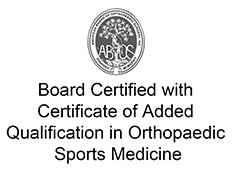
Exploring nature through hiking is a wonderful way to embrace the outdoors and its wonders. Despite its numerous physical and mental health advantages, it's crucial to safeguard your joints for a safe and injury-free experience. Discover how devoted hikers can prioritize their well-being with orthopedic care, ensuring a more enjoyable journey on the trails.
Hiking has a variety of benefits, one of which is weight loss. Here are some of the amazing weight loss benefits that accompany hiking:
- High Caloric Burn: Trekking miles in steep and uneven terrain proves to be a dynamic cardiovascular exercise, burning calories and encouraging weight loss.
- Boosted Metabolism: When you regularly engage in physical activity, your metabolism increases. This means that your metabolism, even at times of rest, works more efficiently at burning calories.
- Muscle Building: Hiking engages muscles in your legs, core, and even upper body. This activation in your muscles can promote weight loss while toning and strengthening your muscles.
- Improved Heart Health: Because hiking is a dynamic and vigorous exercise, your heart rate will be elevated throughout the hike. This is considered cardiovascular training, helping to improve your heart health and contribute to weight loss.
Accidents can happen while hiking, which can be difficult to get help on a remote trail. Take some time to educate and prepare with these injury prevention tips:
- Warm Up: Whenever you engage in physical activity, including hiking, you shouldalways warm up and stretch. Proper warm up and stretching are an important partof preparation for better joint health.
- Invest in Proper Footwear: While hiking, improper shoes can put you at risk ofinjury. Investing in a pair of hiking boots, with ankle support and a robust sole, willhelp provide stability and protect your ankle on uneven terrain.
- Pack Light: A heavy pack during a hike can put extra pressure on your joints andback. Pack essential items only to reduce any excess weight.
- Keep Hydrated and Satiated: Hydrate up to 3 hours before your hike. During ahike, consume adequate amounts of food and water. Drinking water will keep yourjoints moving smoothly, while helping avoid muscle weakness associated withdehydration. Pack foods that will boost your energy and are nutritious for your jointhealth.
- Stay Aware: During a hike, it is important to stay mindful of the terrain and thedifficulty of the trail you choose. Don’t push yourself to do a trail that is too difficult,and listen to your body.
Hiking is a rewarding and refreshing outdoor activity with weight loss benefits. When combining this with thoughtful orthopedic care, hiking enthusiasts can enjoy the trails safely and routinely.
Dr. Amir Jamali is dedicated to helping patients live an active lifestyle for better health andwellness.
AUTHOR: Dr. Amir Jamali, founder of the Joint Preservation Institute, is a board-certified fellowship-trained orthopedic surgeon in Northern California specializing in treatments for the knee, hip and shoulder.








 Orthopedic Care for Hiking Enthusiasts: Weight Loss Benefits and Injury Prevention
Orthopedic Care for Hiking Enthusiasts: Weight Loss Benefits and Injury Prevention 







